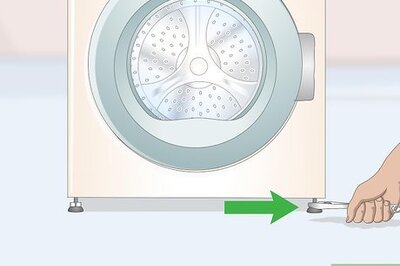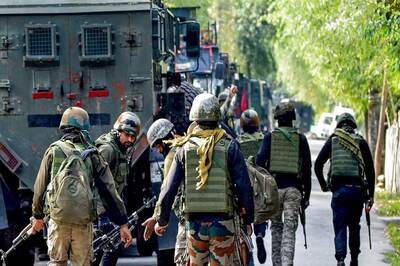
views
The Madhya Pradesh High Court (HC) at has held that allegations of a wife’s failure to prepare food on time and making her husband do household chores are not sufficient establish a case for abetment of suicide as alleged domestic issues are trivial and common in many households.
The court, presided over by Justice Hirdesh, overturned a previous order from April 3, 2024 issued by the by the First Additional Sessions Judge, Sardarpur, District-Dhar (MP), which had framed charges against the wife (petitioner) under Section 306 of the Indian Penal Code (IPC). The court stated: “The allegations which have been made against the petitioner are trivial in nature which generally took (SIC) place in every house.”
The case involved the petitioner Sangita and her husband, whose marriage was solemnised on April 27, 2022. The couple had a daughter and lived in a rented house in Rajgarh, Dhar (MP). Sangita, a government school teacher, and her husband, a labourer, resided together in the rented accommodation for approximately six months before the tragic incident. On December 27, 2023, Sangita’s husband committed suicide by hanging himself in their residence. Following the incident, an FIR was registered by the police against Sangita on January 16, 2024, after a lapse of 21 days.
The petitioner argued that her actions, including household responsibilities and attending a family wedding, did not constitute harassment or instigation as defined by law. It was further emphasised that the deceased did not leave a suicide note or gave a dying declaration, nor were there any prior complaints from the deceased against his wife, thus her actions fell within the bounds of marital duties and did not amount to abetment under Section 306 IPC.
Contrarily, the prosecution (state) opposed the wife’s plea submitting that the petitioner was responsible for the suicide of the deceased, as the suicide was a direct consequence of the alleged harassment by Sangita. The prosecution argued that Sangita’s behaviour, including compelling her husband to do household chores and other domestic issues, led to the deceased’s extreme distress and eventual suicide. It was contended that these actions justified the charge under Section 306 IPC and sought the dismissal of the revision petition.
The court examined the legal framework for abetment of suicide as outlined under Section 306 IPC and the definition of “abetment” under Section 107 IPC. The court referenced several landmark judgments delivered by the Supreme Court to clarify the standards for abetment of suicide.
The high court highlighted the cases of ‘Chitresh Kumar Chopra vs. State’ (2009), which established that instigation involves provoking or encouraging someone to act, and there must be a reasonable certainty of incitement, ‘Praveen Pradhan vs. State of Uttaranchal’ (2012) which highlighted that mere words or actions in anger, without intent, do not amount to instigation, ‘Sanju @ Sanjay Singh Sengar vs. State of M.P.’ (2002) which emphasised that instigation requires a guilty mind (mens rea), and hypersensitivity to ordinary discord does not qualify as instigation and ‘Gangula Mohan Reddy vs. State of Andhra Pradesh’ (2010), wherein the court asserted that abetment necessitates an active, direct act leading to suicide, rather than just ordinary domestic issues.
The court observed: “Not preparing the food in time, compelling the husband to do the work of mopping, cleaning as well as washing clothes, dancing in the marriage of her own brother, compelling the deceased to immediately go back to their place of resident …and going to the market along with other persons for shopping purposes, cannot be said to be an abetment.”
The court found that the allegations, even if accepted in their entirety, did not amount to abetment under Section 306 IPC, clarifying that “In cases of abetment of suicide, there must be proof of direct or indirect acts or incitement of commission of suicide. Acts involve multifaceted and complex attributes of human behaviour and reactions or in the cases of abetment, Court must look for cogent and convincing proof of acts of incitement of commission of suicide. Instigation means to goad, urge forward, provoke, incite, urge or encourage to do an act.”
The HC concluded that no case was made out to warrant prosecution of the petitioner under the said section. The order of the trial court was, thus, set aside and the petitioner was discharged.


















Comments
0 comment